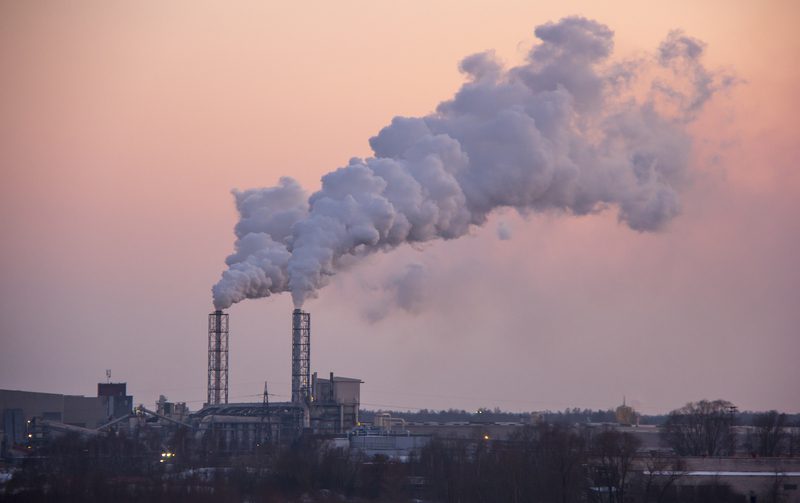
RICH POWELL: Conservatives Are Cutting A Clear Path To Solving Climate Change. Here’s How
Rich Powell on December 9, 2022
Congressional leadership transitions bring forth new committee assignments, new priorities and a new energy policy vision. While some suggest a new Republican majority in the U.S. House of Representatives will work to undo recent efforts on addressing climate change, we disagree with that premise.
Look, economic inflation, high gas and electricity prices, unrest in Eastern Europe, increasing global carbon dioxide emissions and global supply chain chaos are all realities. Combined, there is an ongoing global energy crisis.
But how to solve this crisis has created false choices in Washington. Debates on renewables versus fossils, economy versus environment, or 100% global emissions reduction versus inaction in the U.S. are clouding the path forward on the global challenge.
The truth is, no nation, government or business will achieve climate goals and see economic success unless we eliminate those false choices and leverage all energy resources on the table.
We need to focus on policies that make new and emerging clean energy technologies more affordable, not policies that make existing energy more expensive and harder to produce.
Democrats have historically proposed top-down climate policies like mandates, heavy regulations, or new taxes. Yet global emissions, the only real measure of success or failure in solving climate change, continue to increase.
The reason these progressive policies don’t work? They are almost entirely focused on reducing domestic carbon dioxide emissions. In fact, driving up prices on American energy is only helping foreign adversaries who care less about climate.
Developing nations do not have the purchasing power of the U.S., thus, choose the cheapest energy options. Their best option — higher emitting Chinese technology.
Republicans’ policies have been focused on the right targets — making American energy cleaner and more affordable, and reducing global emissions. The big thing often missed in climate discussions is that a molecule of carbon dioxide emitted in New Delhi is the same as one emitted in New Orleans. Punishing the producer in America does not help the rest of the world.
Plus, while most of the world is emitting more carbon dioxide, U.S. emissions are actually trending down, falling by about 1% per year since 2005, due to innovation. The power sector has transitioned to lower-emitting natural gas and increased renewables. We’re also down from 21% in 2005 to 13% of the global total in 2021.
America’s energy industry has even bigger ambition, coalescing around net-zero emissions goals. But, climate models and analyses show that tens of thousands of miles of new pipelines transmitting hydrogen and other clean fuels, more carbon capture, and new clean energy transmission and distribution infrastructure will all be needed.
The clean energy infrastructure build-out promises to be the largest and most exciting continental construction project in U.S. history. At the same time, America’s grid is already strained to the max, and projections show we will need twice as much power generation to meet load demands in the next decade.
And every single one of these infrastructure projects or power plants will need a permit — often dozens of them at the federal, state and local levels. Permitting the volume of projects will simply be a red tape nightmare.
The policy framework the new House majority is putting forth will fix those permitting challenges while accelerating more clean energy innovation and deployment. And in doing so, equip other nations with access to cleaner, more affordable American technology.
Conservatives have been making huge strides in recent years — in fact, major energy policy wins like the Energy Act of 2020 and bipartisan infrastructure law passed largely thanks to Republican support.
There is also a Conservative Climate Caucus, led by Utah Republican Rep. John Curtis, which has over 70 Republican members of Congress, making it the second largest Republican caucus in the House, next to the Republican Study Committee.
The Energy, Climate, and Conservation Task Force, led by Louisiana Republican Rep. Garret Graves, is another example of conservative climate leadership. Earlier this year, that Task Force, assembled by House Minority Leader Kevin McCarthy, released a comprehensive, six-part policy framework that will help secure American energy dominance over adversaries like Russia and China while unleashing domestic resources, boosting the economy and fostering community resilience across America.
They’ve signaled this comprehensive policy will be among their top priorities in the new Congress.
There is real momentum around rational solutions that can both solve the climate challenge and support a healthy economy. And we are not merely suggesting you give conservatives a chance on climate — you should be excited about their energy, climate and conservation policy agenda.
Rich Powell is CEO of ClearPath, a Washington, D.C.-based nonprofit that develops and advances policies that accelerate breakthrough innovations to reduce emissions in the energy and industrial sectors.
The views and opinions expressed in this commentary are those of the author and do not reflect the official position of the Daily Caller News Foundation.
RICH POWELL: Conservatives Are Cutting A Clear Path To Solving Climate Change. Here’s How
Content created by The Daily Caller News Foundation is available without charge to any eligible news publisher that can provide a large audience. For licensing opportunities of our original content, please contact licensing@dailycallernewsfoundation.org.
